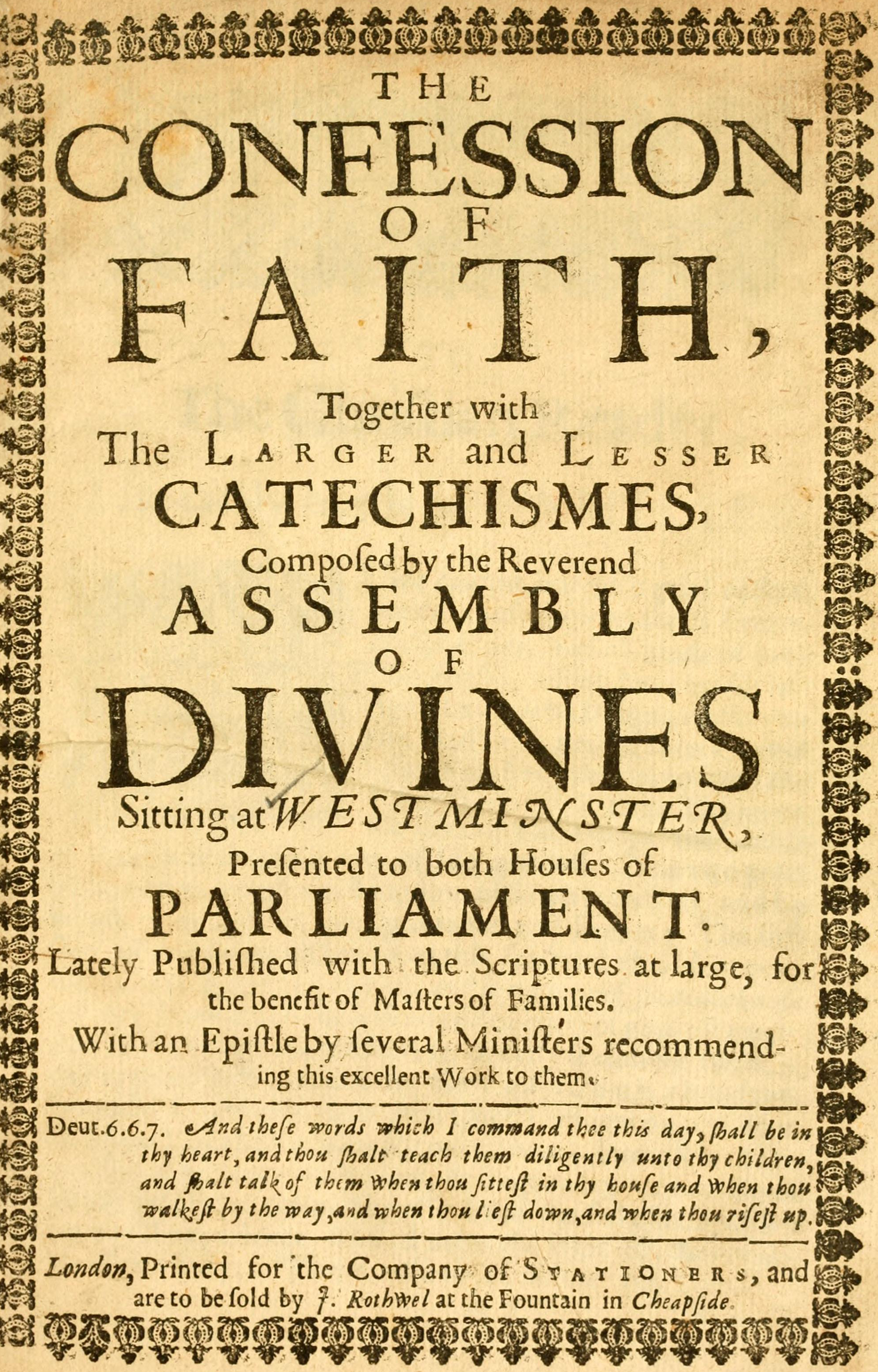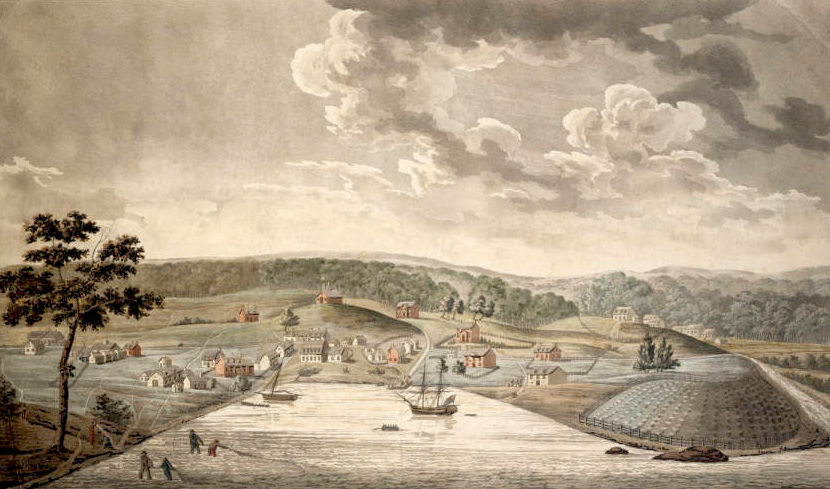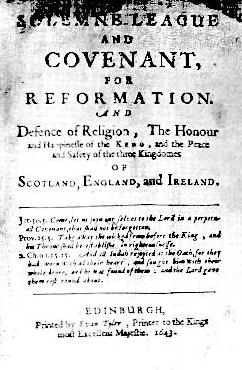|
Reformed Presbyterian Church Of Ireland
The Reformed Presbyterian Church of Ireland is a Covenanting church in Ireland. In 2024, the church had forty-two congregations, of which thirty-two were located in Northern Ireland; the remaining ten were located in the Republic of Ireland. As of 2011, its total communicant membership was 1,952. The distribution of Reformed Presbyterians accords with the distribution of the Ulster Scots, with most congregations based in counties Antrim, Londonderry and Down. Several new congregations have, however, been formed recently in the Belfast area, along with fellowships in Galway, Limerick and Dublin. History The church's roots date back to the 17th-century plantation of Ulster by Scots Presbyterian settlers. When the Revolution Settlement was entered into in 1690 following the victory of William III in the Williamite War, a minority of Presbyterians refused to subscribe, claiming its failure to specifically recognise the kingship of Jesus Christ was a departure from the Solemn L ... [...More Info...] [...Related Items...] OR: [Wikipedia] [Google] [Baidu] |
Protestantism
Protestantism is a branch of Christianity that emphasizes Justification (theology), justification of sinners Sola fide, through faith alone, the teaching that Salvation in Christianity, salvation comes by unmerited Grace in Christianity, divine grace, the priesthood of all believers, and the Bible as the sole infallible source of authority for Christian faith and practice. The five solae, five ''solae'' summarize the basic theological beliefs of mainstream Protestantism. Protestants follow the theological tenets of the Reformation, Protestant Reformation, a movement that began in the 16th century with the goal of reforming the Catholic Church from perceived Criticism of the Catholic Church, errors, abuses, and discrepancies. The Reformation began in the Holy Roman Empire in 1517, when Martin Luther published his ''Ninety-five Theses'' as a reaction against abuses in the sale of indulgences by the Catholic Church, which purported to offer the remission of the Purgatory, temporal ... [...More Info...] [...Related Items...] OR: [Wikipedia] [Google] [Baidu] |
Scottish People
Scottish people or Scots (; ) are an ethnic group and nation native to Scotland. Historically, they emerged in the Scotland in the Early Middle Ages, early Middle Ages from an amalgamation of two Celtic peoples, the Picts and Gaels, who founded the Kingdom of Scotland (or ''Kingdom of Alba, Alba'') in the 9th century. In the following two centuries, Celtic-speaking Hen Ogledd, Cumbrians of Kingdom of Strathclyde, Strathclyde and Germanic-speaking Anglo-Saxons, Angles of Northumbria became part of Scotland. In the Scotland in the High Middle Ages, High Middle Ages, during the 12th-century Davidian Revolution, small numbers of Normans, Norman nobles migrated to the Lowlands. In the 13th century, the Norse-Gaels of the Kingdom of the Isles, Western Isles became part of Scotland, followed by the Norsemen, Norse of the Northern Isles in the 15th century. In modern usage, "Scottish people" or "Scots" refers to anyone whose linguistic, cultural, family ancestral or genetic origin ... [...More Info...] [...Related Items...] OR: [Wikipedia] [Google] [Baidu] |
Psalms
The Book of Psalms ( , ; ; ; ; , in Islam also called Zabur, ), also known as the Psalter, is the first book of the third section of the Tanakh (Hebrew Bible) called ('Writings'), and a book of the Old Testament. The book is an anthology of Biblical Hebrew, Hebrew religious hymns. In the Judaism, Jewish and Western Christianity, Western Christian traditions, there are 150 psalms, and several more in the Eastern Christianity, Eastern Christian churches. The book is divided into five sections, each ending with a doxology, a hymn of praise. There are several types of psalms, including hymns or songs of praise, communal and individual laments, royal psalms, Imprecatory Psalms, imprecation, and individual thanksgivings. The book also includes psalms of communal thanksgiving, wisdom, pilgrimage and other categories. Many of the psalms contain attributions to the name of David, King David and other Biblical figures including Asaph (biblical figure), Asaph, the Korahites, sons of Kora ... [...More Info...] [...Related Items...] OR: [Wikipedia] [Google] [Baidu] |
Westminster Shorter Catechism
The Westminster Shorter Catechism is a catechism written in 1646 and 1647 by the Westminster Assembly, a synod of English and Scottish theologians and laymen intended to bring the Church of England into greater conformity with the Church of Scotland. The assembly also produced the Westminster Confession of Faith and the Westminster Larger Catechism. A version without Scripture citations was completed on 25 November 1647 and presented to the Long Parliament, and Scripture citations were added on 14 April 1649. Background Catechesis is a practice of teaching the Christian faith. New converts to Christianity were taught through lectures during the first four centuries of the Church's existence, but this practice was largely abandoned with the rise of Christendom. Christian humanists and Protestant Reformers sought to revive the practice, including the Reformed. John Calvin's Genevan Catechism was especially influential among the British Reformed. The most popular British cate ... [...More Info...] [...Related Items...] OR: [Wikipedia] [Google] [Baidu] |
Westminster Larger Catechism
The Westminster Larger Catechism, along with the Westminster Shorter Catechism, is a central catechism of Calvinists in the English tradition throughout the world. History In 1643 when the Long Parliament of England called the Westminster Assembly to produce the Westminster Confession, it also asked for a directory of "catechising". The Assembly asked Herbert Palmer to produce a draft of the Larger Catechism. Robert Baillie and other Scottish delegates found the work disappointing. In December 1643 a committee was formed to write the Catechism. In January 1647 the Assembly gave up writing one catechism and split it into two. The Westminster Shorter Catechism was to be "easier to read and concise for beginners" and the Larger Catechism was to be "more exact and comprehensive". The Catechism was completed by the Westminster Assembly in 1647. It was then adopted by the General Assembly of the Church of Scotland in 1648 and (with modifications relating to the civil magistr ... [...More Info...] [...Related Items...] OR: [Wikipedia] [Google] [Baidu] |
Westminster Confession Of Faith
The Westminster Confession of Faith, or simply the Westminster Confession, is a Reformed confession of faith. Drawn up by the 1646 Westminster Assembly as part of the Westminster Standards to be a confession of the Church of England, it became and remains the " subordinate standard" of doctrine in the Church of Scotland and has been influential within Presbyterian churches worldwide. In 1643, the English Parliament called upon "learned, godly and judicious Divines" to meet at Westminster Abbey in order to provide advice on issues of worship, doctrine, government and discipline of the Church of England. Their meetings, over a period of five years, produced the confession of faith, as well as a Larger Catechism and a Shorter Catechism. For more than three hundred years, various churches around the world have adopted the confession and the catechisms as their standards of doctrine, subordinate to the Bible. For the Church of Scotland and the various denominations which spring ... [...More Info...] [...Related Items...] OR: [Wikipedia] [Google] [Baidu] |
Baltimore
Baltimore is the most populous city in the U.S. state of Maryland. With a population of 585,708 at the 2020 census and estimated at 568,271 in 2024, it is the 30th-most populous U.S. city. The Baltimore metropolitan area is the 20th-largest metropolitan area in the country at 2.84 million residents. The city is also part of the Washington–Baltimore combined statistical area, which had a population of 9.97 million in 2020. Baltimore was designated as an independent city by the Constitution of Maryland in 1851. Though not located under the jurisdiction of any county in the state, it forms part of the central Maryland region together with the surrounding county that shares its name. The land that is present-day Baltimore was used as hunting ground by Paleo-Indians. In the early 1600s, the Susquehannock began to hunt there. People from the Province of Maryland established the Port of Baltimore in 1706 to support the tobacco trade with Europe and established the Town ... [...More Info...] [...Related Items...] OR: [Wikipedia] [Google] [Baidu] |
Cullybackey
Cullybackey or Cullybacky () is a large village in County Antrim, Northern Ireland. It lies 3 miles north-west of Ballymena, on the banks of the River Main, and is part of Mid and East Antrim district. It had a population of 2,569 people in the 2011 Census. History Cullybackey was part of the ancient kingdom of Dál nAraidi. Evidence of ancient dwellers in the area have been found throughout the years, including the remains of Crannogs and Souterrains. Christian Missionary Mackevet erected a monastery in the area. It is said that when Mackevet first approached the Irish Chieftain MacAfee about this matter the two began to argue over it and Mackevet, who was a large man raised his fist into the chieftains face and said "I'm a man of peace, but smell that MacAfee". This won him the argument and the monastery was built, supplying the area with a place of learning for many centuries afterwards. In 1778 a Volunteers company was raised by John Dickey of Cullybackey House, They na ... [...More Info...] [...Related Items...] OR: [Wikipedia] [Google] [Baidu] |
Synod
A synod () is a council of a Christian denomination, usually convened to decide an issue of doctrine, administration or application. The word '' synod'' comes from the Ancient Greek () ; the term is analogous with the Latin word . Originally, synods were meetings of bishops, and the word is still used in that sense in Catholicism, Oriental Orthodoxy and Eastern Orthodoxy. In modern usage, the word often refers to the governing body of a particular church, whether its members are meeting or not. It is also sometimes used to refer to a church that is governed by a synod. Sometimes the phrase "general synod" or "general council" refers to an ecumenical council. The word ''synod'' also refers to the standing council of high-ranking bishops governing some of the autocephalous Eastern Orthodox and Oriental Orthodox churches. Similarly, the day-to-day governance of patriarchal and major archiepiscopal Eastern Catholic Churches is entrusted to a permanent synod. Usages in diffe ... [...More Info...] [...Related Items...] OR: [Wikipedia] [Google] [Baidu] |
Presbyterian Church Of Ireland
The Presbyterian Church in Ireland (PCI; ; Ulster-Scots: ''Prisbytairin Kirk in Airlann'') is the largest Presbyterian denomination in the Republic of Ireland, and the largest Protestant denomination in Northern Ireland. Like most Christian churches in Ireland, it is organised on an all-island basis, in both Northern Ireland and the Republic of Ireland. The church has approximately 210,000 members. Membership The Church has a membership of approximately 210,000 people in 534 congregations in 403 charges across both Northern Ireland and the Republic of Ireland. About 96% of the membership is in Northern Ireland. It is the second-largest church in Northern Ireland after the Catholic Church, and the second-largest Protestant denomination in the Republic, after the Church of Ireland. All the congregations of the church are represented up to the General Assembly (the church's government). History Presbyterianism in Ireland dates from the time of the Plantation of Ulster in 16 ... [...More Info...] [...Related Items...] OR: [Wikipedia] [Google] [Baidu] |
Solemn League And Covenant
The Solemn League and Covenant was an agreement between the Scottish Covenanters and the leaders of the English Parliamentarians in 1643 during the First English Civil War, a theatre of conflict in the Wars of the Three Kingdoms. On 17 August 1643, the Church of Scotland (the Kirk) accepted it and on 25 September 1643 so did the English Parliament and the Westminster Assembly. English Parliament (First Civil War) At the time, the Protestant leaders of the English Parliament were in conflict with King Charles I. Fearing Irish Catholic troops could join the Royalist army, Parliament requested the aid of the Scots. The Presbyterian Covenanters promised their aid, on condition that the Scottish system of church government was adopted in England. This was acceptable to the majority of the English Long Parliament, as many MPs were Presbyterians, while others preferred allying with the Scots rather than losing the Civil War. After some haggling a document called "'' The Solemn ... [...More Info...] [...Related Items...] OR: [Wikipedia] [Google] [Baidu] |
Jesus Christ
Jesus (AD 30 or 33), also referred to as Jesus Christ, Jesus of Nazareth, and many Names and titles of Jesus in the New Testament, other names and titles, was a 1st-century Jewish preacher and religious leader. He is the Jesus in Christianity, central figure of Christianity, the Major religious groups, world's largest religion. Most Christians consider Jesus to be the Incarnation (Christianity), incarnation of God the Son and awaited Messiah#Christianity, messiah, or Christ (title), Christ, a descendant from the Davidic line that is prophesied in the Old Testament. Virtually all modern scholars of classical antiquity, antiquity agree that Historicity of Jesus, Jesus existed historically. Accounts of Life of Jesus, Jesus's life are contained in the Gospels, especially the four canonical Gospels in the New Testament. Since the Age of Enlightenment, Enlightenment, Quest for the historical Jesus, academic research has yielded various views on the historical reliability of t ... [...More Info...] [...Related Items...] OR: [Wikipedia] [Google] [Baidu] |







